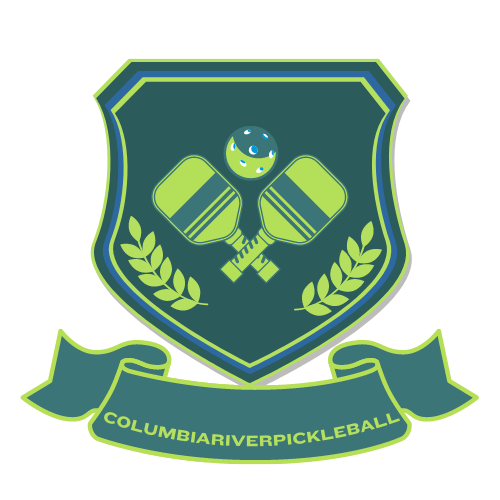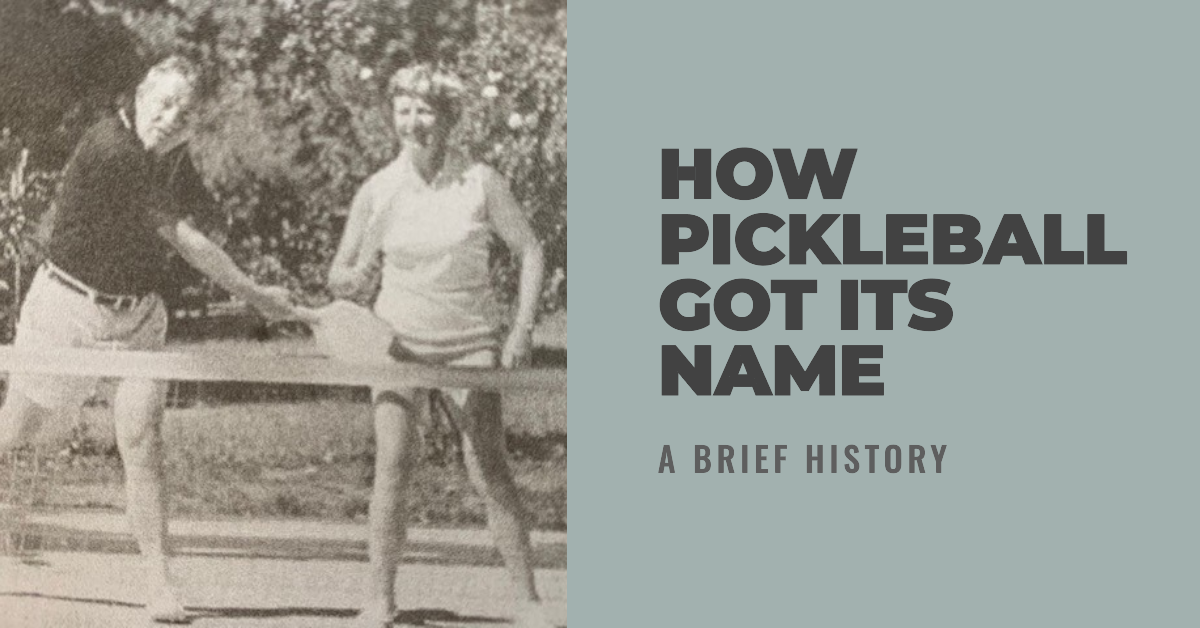Formed in 1965, pickleball has since grown to become a widely played sport. It is a game that combines elements of tennis, badminton, and ping-pong and is played with paddles and a plastic ball with holes.
Over the years, the game has grown in popularity, and millions of people now play it worldwide. However, the game’s name has always been a topic of discussion among players and enthusiasts.
Many people wonder how pickleball got its name. The truth is that there are several stories about the origin of the name.
Some people believe that the game was named after a dog named Pickles, who used to chase after the ball during the game’s early days.
Others believe that the name comes from the combination of the words “pickle boat,” which is a term used in crew to describe a boat made up of leftover oarsmen from other boats.
However, there are other theories as well, and the name’s true origin remains a mystery.
Origins of Pickleball
Pickleball is a paddle sport that combines elements of tennis, badminton, and table tennis. It is played on a smaller court with a solid paddle and a perforated plastic ball.
The game’s objective is to hit the ball over the net and into the opponent’s court, scoring points when they cannot return it. Pickleball has gained popularity recently due to its accessibility and ease of learning.
It was invented in 1965 on Bainbridge Island, a small community in Washington State.
Joel Pritchard, a congressman, and Bill Bell, a businessman, came up with the game while looking for a fun activity to keep their families entertained.
Legend has it that the game was named after Pritchard’s dog, Pickles, who would chase after the ball and hide it in the bushes.
However, this story has been debunked by Pritchard’s family, who claim that the dog was actually acquired after the game was created.
Another popular theory is that the game was named after a pickle boat, a term used in rowing to describe a boat made up of leftover oarsmen.
Despite the uncertainty surrounding its name, pickleball quickly gained popularity among the residents of Bainbridge Island and soon spread to other parts of the country.
In 1972, the first pickleball tournament was held, and in 1984, the USA Pickleball Association was formed to promote and govern the sport.
Millions of people play pickleball today, from amateur players to athletes on the professional level.
The sport continues to evolve, introducing new rules and equipment to make the game more accessible and enjoyable for players of all ages and skill levels.
Naming Process
The origin of the name “pickleball” is not entirely clear. There are two popular stories about how the name came to be.
The first story involves the family dog of one of the game’s founders, Joel Pritchard. According to this story, the Pritchards had a dog named Pickles who would chase after and steal the ball during games. The dog’s antics inspired the name “pickleball.”
The second story involves the term “pickle boat.” This term was used in crew to describe a boat made up of leftover oarsmen from other boats. One of the game’s founders, Barney McCallum, had a background in crew and suggested the name “pickleball” as a nod to the term “pickle boat.”
Despite the two stories, the name’s true origin is still debated. In an interview with USA Pickleball, McCallum himself stated that he did not remember the exact origin of the name and that it likely came from a combination of factors.
Regardless of the origin, the name “pickleball” has become synonymous with the game. It is now a popular sport that even the International Olympic Committee has acknowledged.
The Pickles Dog Theory
According to this theory, the game was named after a cockapoo puppy named Pickles, who belonged to Joel Pritchard’s daughter.
The Pickles
Pickles was known for his love of chasing and running off with the Wiffle ball that was used in the game. He would often steal the ball and run away with it, causing the players to chase after him.
Connection to the Game
The connection to Pickles the dog has become a popular part of the game’s lore. In fact, many pickleball players today bring dogs to the court with them, and some even have tournaments specifically for dogs.
While the Pickles Dog Theory may not be the only explanation for how pickleball got its name, it has undoubtedly become a beloved part of the game’s history and culture.
The Pickle Boat Theory
One of the theories about how pickleball got its name is the Pickle Boat Theory. This theory suggests that the sport was named after the pickle boat in crew, also known as rowing.
Pickle Boat Concept
The pickle boat is a term used in rowing to describe a boat that is made up of leftover oarsmen from other boats.
The leftover oarsmen were said to be “pickled” because they were preserved in vinegar like pickles.
The pickle boat was usually the least desirable boat to be on because it was made up of oarsmen who were not good enough to make it onto the other boats.
Relation to Pickleball
According to this theory, the name “pickleball” was chosen because the game was a combination of different sports, much like the pickle boat was a combination of leftover oarsmen.
Played on a court that is smaller than a tennis court, pickleball combines elements of tennis, badminton, and ping-pong.
Conclusion
Pickleball fans have long debated the name’s origin. Some people think that the sport’s name comes from one of its founders’ dogs named Pickles, while others believe that the pickle boat from crew racing served as its inspiration.
The most common explanation is that Joel Pritchard’s wife Joan named the game after comparing its mix of sports to a pickle boat in crew racing. The name “pickleball” stuck, and the sport has become one of the most popular in the US.
Ultimately, the name “pickleball” may be just a small part of the game’s history, but it has become an essential part of the sport’s identity.
As the game continues to evolve and grow, it is clear that the name “pickleball” will remain a beloved part of the sport’s legacy for years to come.
READ MORE:

